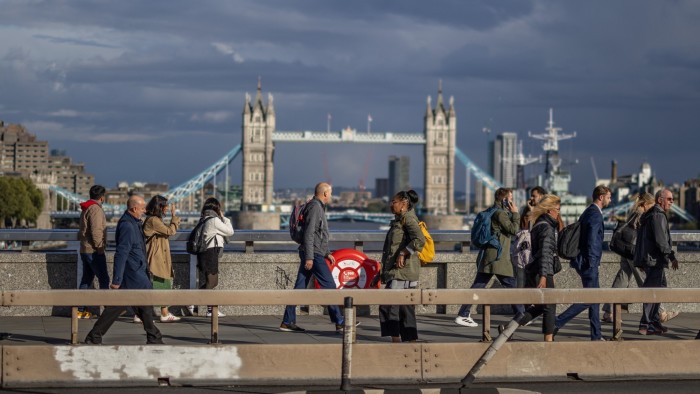UK private sector employment shrinks at fastest pace since 2021

Stay informed with free updates
Simply sign up to the UK employment myFT Digest — delivered directly to your inbox.
UK companies are cutting employee numbers at the fastest rate since the pandemic, according to a closely watched survey that highlights the impact of Rachel Reeves’ tax-raising Budget.
Private sector employment in December fell by more than during any month since January 2021, according to the S&P Global flash UK purchasing managers’ employment index.
The index fell to 45.8, down from 48.9 in November. It was below the key 50 mark for the third consecutive month and the lowest since 2009 if the pandemic is excluded.
Any reading below 50 indicates that a majority of businesses are reducing headcount.
Chris Williamson, chief business economist at S&P Global Market Intelligence, said: “Firms are responding to the increase in national insurance contributions and new regulations around staffing with a marked pullback in hiring, causing employment to fall in December at the fastest rate since the global financial crisis in 2009 if the pandemic is excluded.”

In another setback for the UK chancellor, separate figures published on Monday indicated that manufacturers’ confidence in the economy also dropped at the sharpest rate since the pandemic in the final quarter.
In her autumn Budget, which raised taxes by £40bn, Reeves announced a £25bn increase in employer national insurance contributions from April 2025.
Businesses will start paying NICs on employees’ earnings from £5,000, rather than the current £9,100 threshold, and the rate will rise by 1.2 percentage points to 15 per cent.
Reeves, who has pledged to Britain’s most “pro-growth” Treasury, has defended the policy. But critics have accused her of denting business confidence, and many companies have said the measure will hit hiring and could lead to higher prices.
Data published on Monday by trade group Make UK showed the index tracking manufacturers’ confidence in the economy fell to 5.8 in the final quarter from 6.8, the largest quarter-on-quarter drop since spring 2020.
Official figures published last week showed the UK economy shrank by 0.1 per cent for two consecutive months in October, pointing to a weak start in the final quarter after strong growth in the first half of this year.
Growth slowed to 0.1 per cent in the three months to September from 0.5 per cent in the previous three months, the Office for National Statistics said.
Monday’s PMI survey indicated that rising wages contributed to the largest increase in input costs since April.
Average prices charged by private sector companies increased at the fastest pace for nine months, which will cause concern for Bank of England policymakers as they meet this week to vote on interest rates.
“The flash PMI for December shows firms absorbing payroll tax hikes in the October 30 Budget by cutting back on hiring and raising prices. The latter will be a particular concern to the Monetary Policy Committee,” said Elliott Jordan-Doak, economist at consultancy Pantheon Macroeconomics.
Markets widely expect the BoE to keep interest rates on hold at 4.75 per cent on Thursday, following quarter-point cuts in November and August.
Andrew Bailey, BoE governor, told the Financial Times this month that
the response to higher NICs was “the biggest issue” after the Budget. “How companies balance the mixture of prices, wages, the level of employment, what is taken on margin, is an important judgment for us,” he added.
The PMI survey also showed businesses’ expectations of activity for the next 12 months sank to a two-year low in December as companies weighed up a tougher outlook for sales alongside rising costs, notably for staff.
Both the employment and expectations indices are part of the headline PMI composite index, which was unchanged from November at 50.5. Williamson said the reading was indicative that the economy “more or less stalled in the fourth quarter”.
However, he added that drop in confidence and cutbacks in headcount “hints at worse to come as we head into the new year”.
https://www.ft.com/__origami/service/image/v2/images/raw/https%3A%2F%2Fd1e00ek4ebabms.cloudfront.net%2Fproduction%2F0956ea2f-4b56-4ecc-ab9f-430fcd6558d5.jpg?source=next-article&fit=scale-down&quality=highest&width=700&dpr=1
2024-12-16 06:00:59




